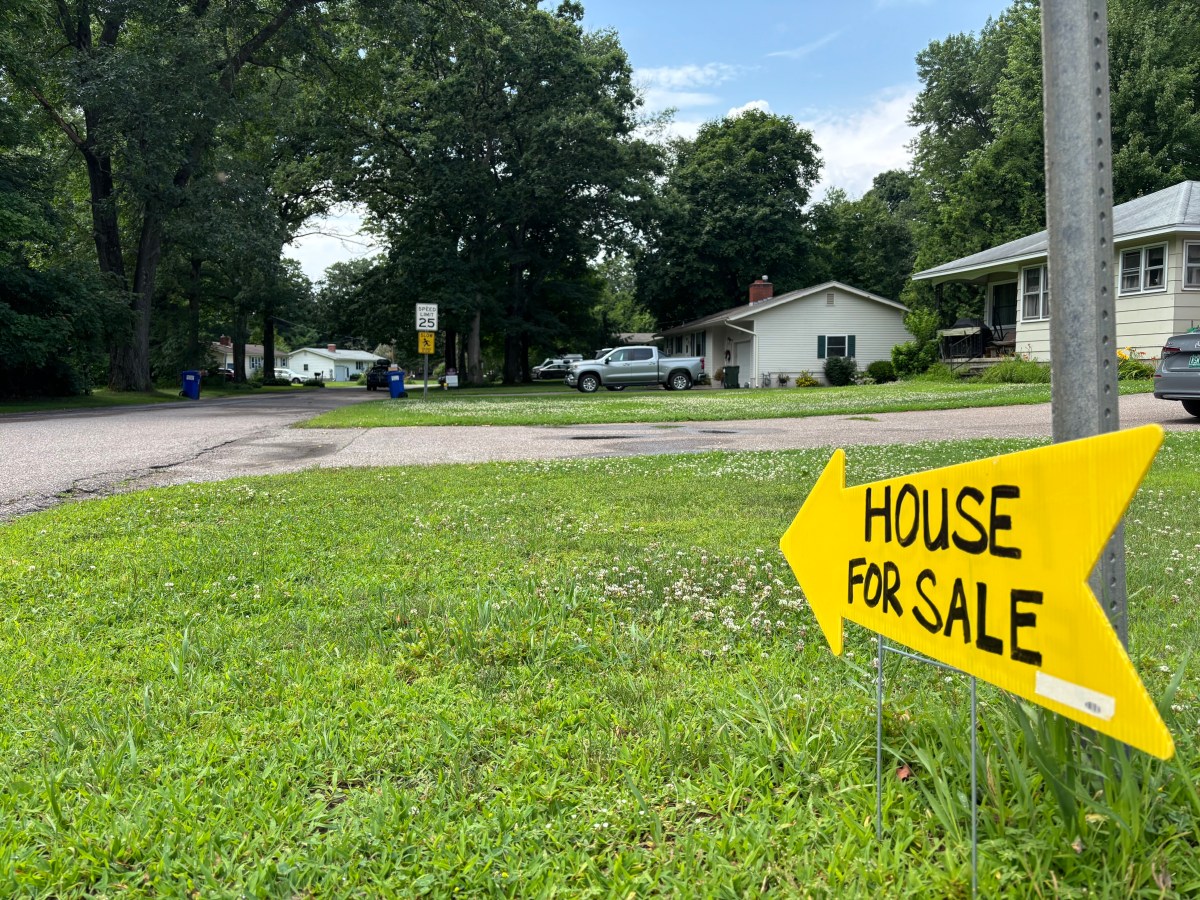
This story, by Report for America corps member Carly Berlin, was produced through a partnership between VTDigger and Vermont Public.
Vermont’s Covid-era home-buying frenzy — marked by an extremely tight supply of available homes and sight-unseen offers — has now eased somewhat.
“I think that the balancing of the marketplace is kind of starting to occur,” said Peter Tucker, a lobbyist for the Vermont Association of Realtors.
An uptick in real estate listings and home sales show that the market has loosened. Fierce bidding wars are less common than they were just a few years ago, realtors say, and for-sale signs are a more common sight in many neighborhoods. Yet home prices continue to rise.
In 2024, the statewide median sale price for a primary home was about $353,000 — a 9% jump from the prior year. That’s according to state property transfer tax records collected by the Vermont Housing Finance Agency, which weeds out seasonal or occasional-use homes.
Preliminary data for the first half of 2025 shows that prices have continued to escalate this year. The median sale price had risen to about $370,000 as of June, according to Maura Collins, VHFA’s executive director.
That metric varies widely across the state. In 2024, the median sale price for a primary home in the state’s poorest and most rural county — Essex — was $200,000. In Chittenden County, Vermont’s population and job center, the median sale price reached $500,000 last year.
During the hot market of the pandemic years, home prices shot up while the number of homes sold plummeted. The rate of home sales now appears to have reversed course. In 2024, 9% more homes were sold than during the year prior, according to the state tax data.
The volume of sales appears to be stabilizing thus far in 2025, though different data sources paint slightly different pictures of the market. The state tax data shows a modest drop in the number of primary home sales during the first half of 2025 versus the first half of 2024. Slightly more current data on all single family home and condo sales collected by the Realtors’ association shows a 2.2% rise in homes sold as of August compared to the same period last year. The number of home listings has also jumped over 8% as of August, according to the Realtors’ association.
It’s still a seller’s market, and inventory remains well below pre-pandemic levels. But now, buyers have more options, said Brian Boardman, a real estate agent and co-owner of Burlington-based Coldwell Banker Hickok and Boardman.
During the tight Covid years between 2021 and 2023, an agent could show a potential buyer maybe one or two homes within their given price range in Chittenden County, Boardman said. “Now, those buyers have, you know, maybe six or seven choices, or more — and so they can get more of their wish list.”
A number of factors could be driving more people to sell their homes. Some homeowners may have been waiting for the pandemic to ease before retiring or moving closer to family, said Tucker, from the Realtors’ association. Some may have been waiting for interest rates to lower. The entrance of newly-constructed homes into the market has helped somewhat, said Boardman.
There’s also a domino effect once inventory starts to open up, Boardman said.
“The people that are in the family homes for 30 or 40 years are going to go to a retirement home, which opens up their house, which gets the young family out of a rental or maybe a two-bedroom condo,” which they can then put on the market, he said.
So why are home prices continuing to rise steeply even as more homes are selling? Collins, from the Vermont Housing Finance Agency, sees that as an indication that Vermont needs to continue building more homes to fill its deep deficit. The state is far from reaching a glut that would drag home values down, she said.
“Our goal is not to depress home values, but to slow the ever-increasing sales prices,” said Collins, who serves on the board of the pro-housing lobbying group Let’s Build Homes. “Even with more homes selling in 2024 than 2023 and even with more homes being listed for sale this summer than last summer, we don’t see that home prices are yet lowering,” she said.
Homes are also still selling quickly during the peak summer season, according to real estate data. That’s one sign that demand remains high.
Data on rentals in Vermont tends to be geographically patchy and outdated. But a recent survey of apartments in the state’s largest rental market — Chittenden County — shows that the razor-thin rental vacancy rate of the Covid-era years has begun to ease, according to Brad Minor, a partner at Allen, Brooks & Minor, a real estate appraisal and analytics firm in South Burlington.
As of June, the area’s rental vacancy rate had risen to 3% — up from under 1%, where it had hovered for over a year beginning in December 2021, Minor said.
That easing is likely tied to the elimination of Covid-era eviction restrictions and rental assistance, but it is also likely the result of new apartments going online, Minor said. In 2024, his firm identified 824 new apartments built in Chittenden County — more than twice the annual rate of building in any given year for the past two decades.
The firm has yet to tabulate how much average rents have changed in the area in 2025, though Minor said that now some landlords of higher-priced rentals with more vacancies are considering making price cuts to attract tenants.
“It’s possible that we may see maybe less dramatic rent increases, because we’re appearing to move towards a state of balance,” he said.
Disclosure: Vermont Public’s April McCullum was a secondary editor on this article and has a family member employed by Coldwell Banker, of which Coldwell Banker Hickok and Boardman is an independent affiliate.
